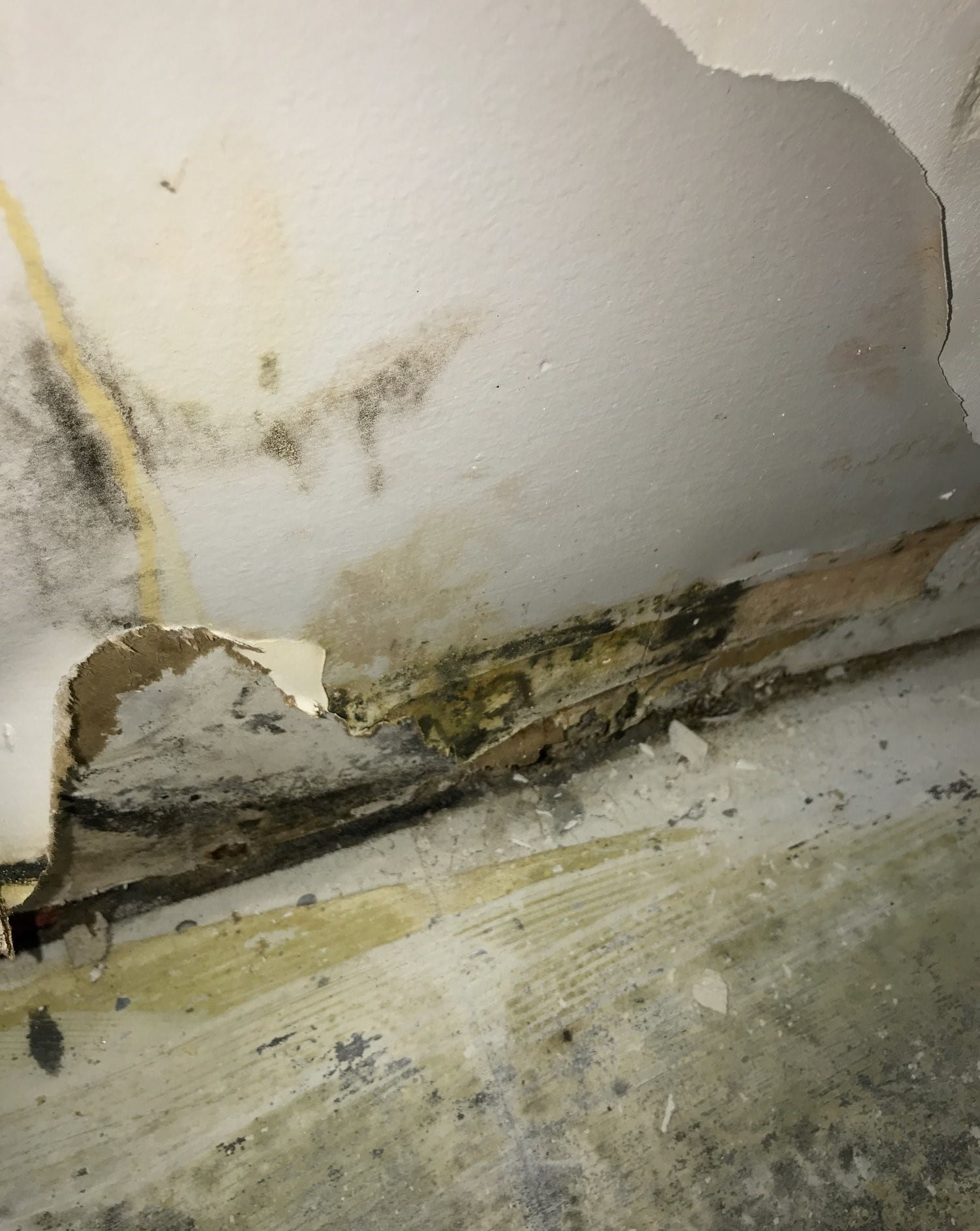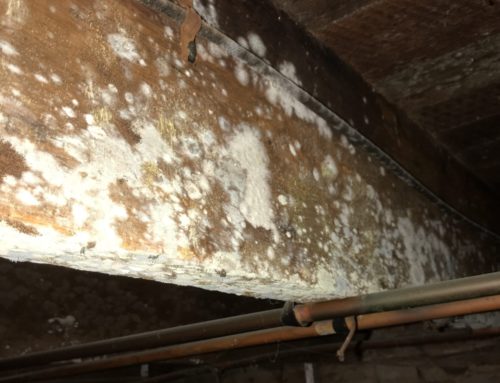Mold can be a nasty problem to deal with whether it be in your home or commercial property. If mold turns out to be toxic, it can pose a serious risk to you, your family, employees, or anyone else on your property. Prolonged exposure to toxic mold may lead to serious health issues that can linger until the mold is removed.
What Is Toxic Mold?
Molds are organisms that grow indoors as well as outdoors. As part of the fungi family, they release tiny spores that float through the air. These spores can enter your home via:
- doors
- windows
- heating and air conditioning vents
- clothing and shoes
- pets
Mold grows in dark and damp spaces such as:
- sinks, bathtubs, and showers
- near leaky pipes
- around windows
- basements, crawl spaces, and attics
Black toxic mold, the most dangerous type, is dark black or sometimes dark green. It is a highly toxic form of mold commonly found in attics. This mold releases mycotoxins which are toxic chemicals that are present in mold spores that get released into the air and can then be inhaled. Toxic mold can cause danger to human health when ingested or inhaled.
The causes of mold growth all boils down to lingering moisture. If found in an attic, it can be due to improper ventilation. Another possible cause of toxic mold is flooding or leaks that leave stagnant water. For this kind of mold to grow, the material would need to be wet for only 72 hours.
Health Issues Caused by Toxic Mold
Mold can damage your home and contribute to health issues. The extent of damage depends on the length of exposure and how many spores were inhaled. Mold spores are naturally floating out in the environment, wet natural materials will allow the spores to settle and grow.
1. Respiratory System
The respiratory system is a common target for mold exposure. Rashes, chronic coughing, sneezing and fatigue, irritation to the eyes and mucous membranes of the nose and throat, and persistent headaches are all symptoms of exposure to toxic mold. The longer you’re exposed to toxic mold, the more severe the effects will be
2. Mental Health Problems
Exposure to toxic mold can also affect the mental state of a person. The mycotoxins produced by toxic mold are neurotoxic. This means they can kill neurons in the brain and destroy a person’s mental abilities. They may also cause nervous system disorders such as tremors or personality changes like mood swings and irritability.
3. Blood and Heart Issues
Mycotoxins can find their way into a person’s bloodstream. This can lead to heart damage and cause problems with blood clotting and internal hemorrhaging.
4. Existing Health Conditions
You may be at a higher risk for complications like infection if you have conditions such as:
- allergies
- asthma
- chronic obstructive pulmonary disorder (COPD)
- compromised immune system
- cystic fibrosis
In people with asthma, an allergic reaction to mold can trigger an attack. People with serious allergies to molds may have more severe reactions including fever and shortness of breath; and those with chronic lung illnesses, like obstructive lung disease, may even develop mold infections in their lungs.
Signs of Toxic Mold in Your Home
Every time you open a window or go outside, mold can be ushered in through the air or by attaching itself to your clothing and shoes. Once indoors, it can grow on the walls, carpeting, or upholstery. Mold is good at reproducing anywhere there is moisture.
Mold starts as a little spot but expands quickly. Mold can be black, white, spotted, or just about any color, and may appear powdery, cottony, or velvety. If you notice a spot and aren’t sure if it’s just an old stain or a splotch of dirt, here’s how to tell if it could be a sign of mold:
- It has a musty, earthy smell.
- There’s a nearby source of moisture, but not much light.
- You see warping, cracking, or peeling of whatever material it’s growing on.
- A drop of bleach lightens its color in a minute or two.
- Unchecked, mold will continue to grow. Dirt and old stains won’t.
Keep Your Property Safe
Professional cleaning and restoration experts know how to tell if mold is toxic or not. At PureOne St. Louis, we have the tools and knowledge to get rid of it. We perform mold inspections and testing to determine the severity of your mold problem. Protect the health of your family by contacting us today for a mold inspection of your property.


